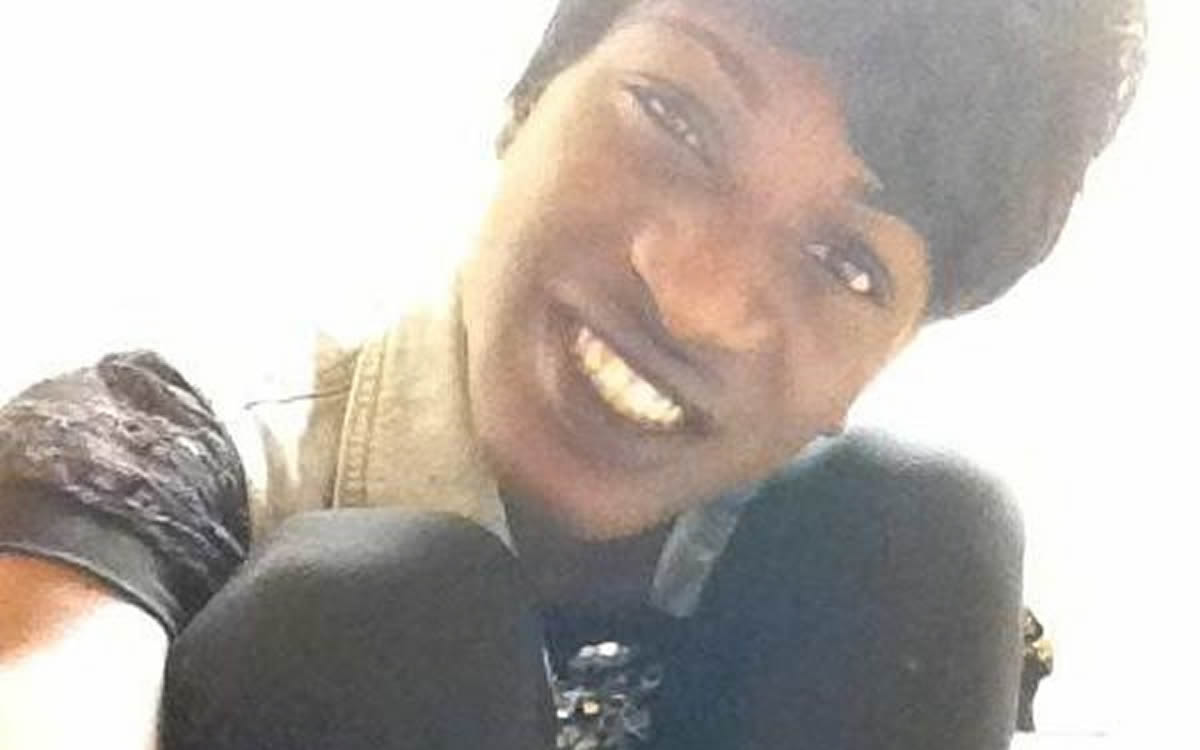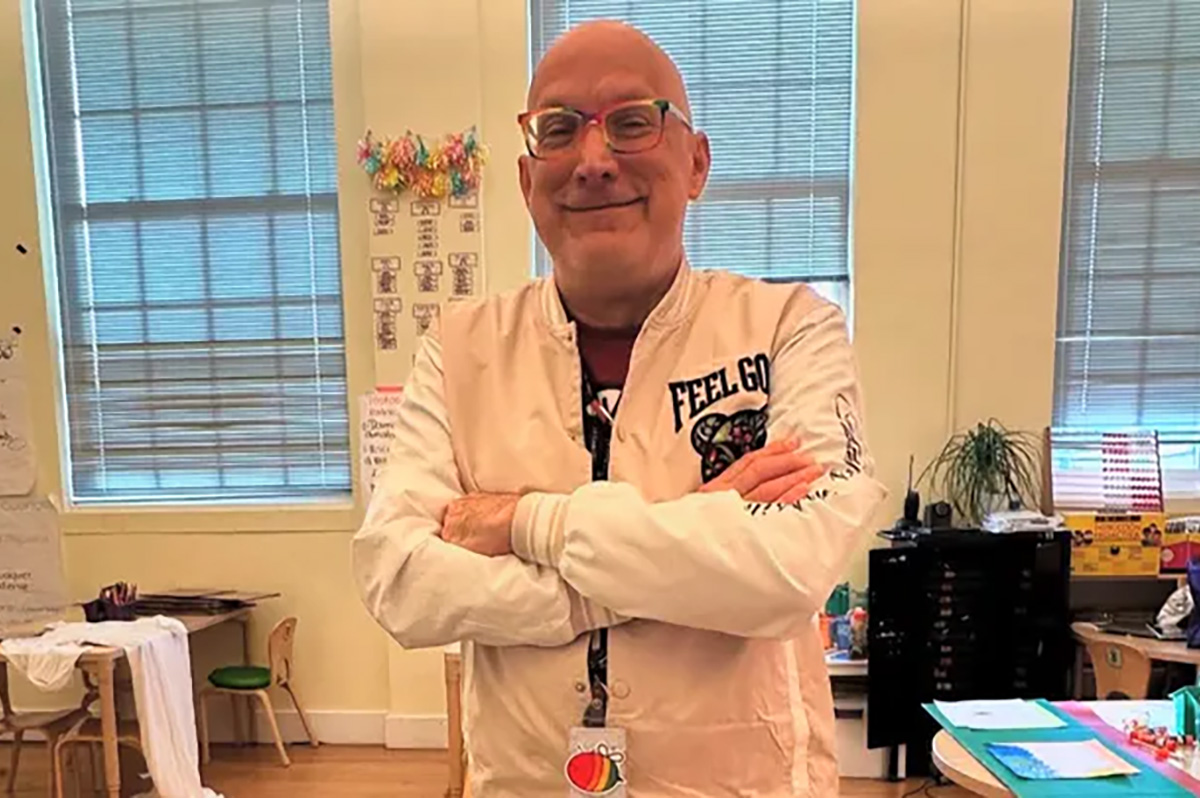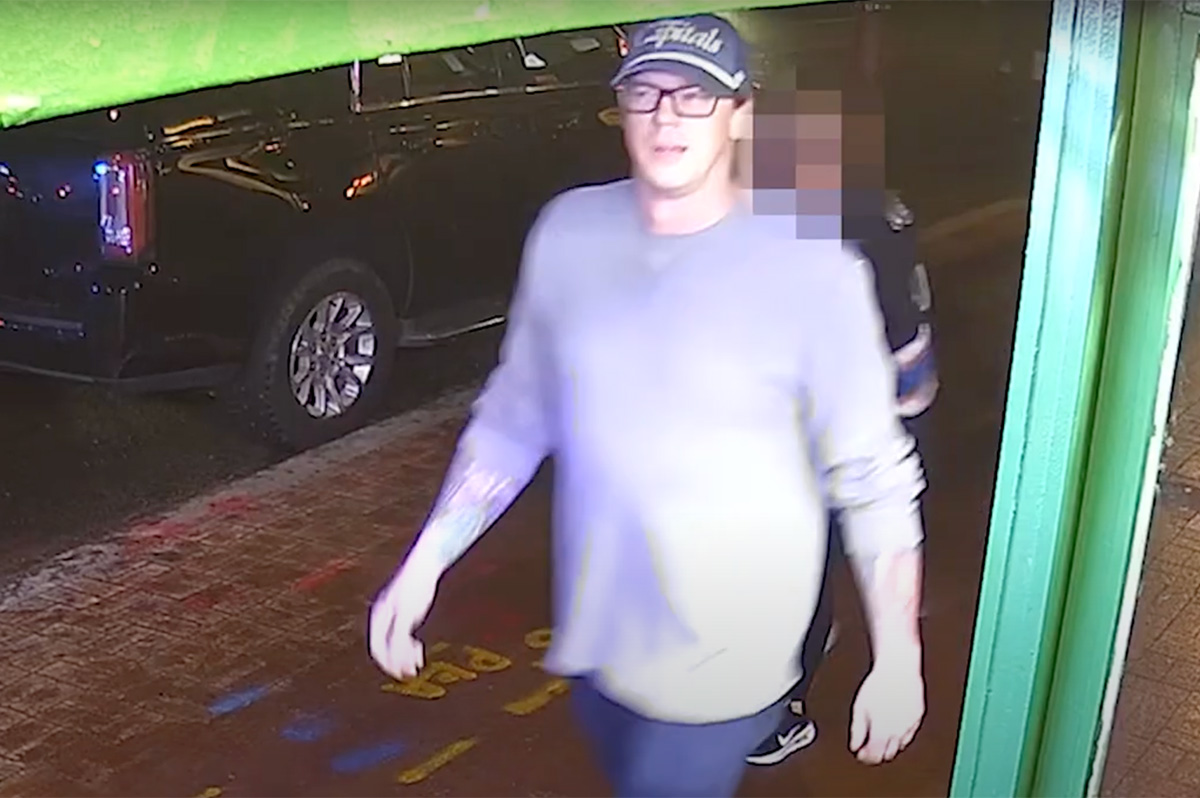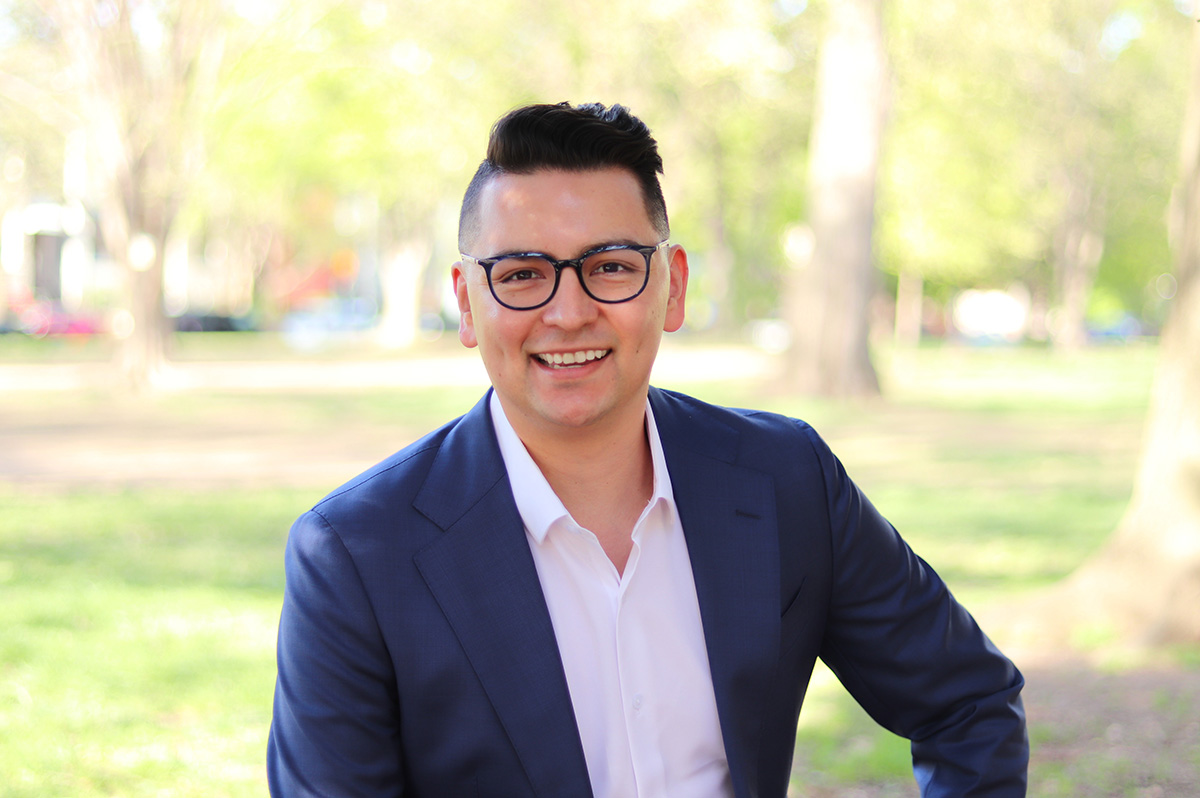District of Columbia
Man charged in D.C. trans murder case sentenced to seven years
Judge adds two additional years for probation violation in burglary

A D.C. Superior Court judge on April 22 sentenced one of four men charged with first-degree murder while armed for the July 4, 2016, shooting death of transgender woman Deeniquia “Dee Dee” Dodds on a street in Northeast Washington to seven years in jail for the murder.
Judge Milton C. Lee sentenced Shareem Hall, 28, to an additional two years in jail for violating his probation in an unrelated conviction for a 2013 home invasion burglary, bringing his total sentence to nine years.
Lee pointed out that Shareem Hall’s involvement in the Dodds murder took place while he was on supervised release in connection with the burglary case, which violated the terms of his release. Lee said the additional two years were for the jail time he would have received had he not been given a suspended sentence in the burglary case.
Hall’s brother, Cyheme Hall, 26, who was also charged with first-degree murder while armed in the Dodds murder case, appeared in court on April 22 for what was expected to be his sentencing. But Lee postponed that sentencing until May 10 at the request of Cyheme Hall’s attorney, who said he needed more time to prepare for the sentencing.
Shareem Hall’s sentencing came four months after two other men charged in the Dodds murder – Jalonta Little, 31, and Monte T. Johnson, 26 — were sentenced by Lee to eight years in jail in the Dodds murder case.
Their sentencing came after they agreed to an offer by prosecutors with the Office of the United States Attorney for D.C. to plead guilty to a single charge of voluntary manslaughter in exchange for the murder charge and other gun related and armed robbery charges being dropped.
D.C. police said Dodds was one of several transgender women that the four men targeted for armed robberies on the night of Dodds’s murder in locations in the city where trans women were known to congregate. Police said Dodds was fatally shot in the neck at point blank range after she fought back when the men attempted to rob her. Cyheme Hall testified at a 2019 trial for Little and Johnson that it was Johnson who shot Dodds.
Prosecutors with the U.S. Attorney’s Office initially listed the case as a hate crime because the four men were targeting transgender people for crimes. But the hate crime designation was dropped at the time of the trial after Lee ruled that there was insufficient evidence to prove the motive was hate rather than robbery.
In handing down his sentence on April 22 for Shareem Hall, Lee noted that Hall cooperated with prosecutors after his arrest in the Dodds case in 2016 by agreeing to testify as a prosecution witness at the 2019 trial for Little and Johnson on the murder and related gun charges in connection with the Dodds murder.
Lee, who presided over the trial, declared a mistrial after the jury was unable to reach a verdict. Prosecutors with the U.S. Attorney’s Office initially said they planned to bring the two men up for another trial. But that never happened, and the case remained in limbo for a little over two years until the plea agreement for the voluntary manslaughter charge was reached last year.
Court records at the time showed that shortly before the 2019 trial for Little and Johnson, both Hall brothers accepted an offer by prosecutors to plead guilty to a charge of second-degree murder in addition to each agreeing to testify at the combined trial for Little and Johnson.
Court records do not show any attempt by the Hall brothers’ attorneys to seek a withdrawal of their guilty plea to second-degree murder in exchange for the same offer prosecutors made for Little and Johnson for a voluntary manslaughter plea.
The current public court records for the Shareem Hall case make a reference to a guilty plea by Hall but make no mention of his having pled guilty to second-degree murder. Instead, the records show Hall having a conviction for three of the original murder related charges.
A spokesperson for the D.C. Superior Court could not be immediately reached by the Washington Blade for an explanation of how the ultimate charges for which Shareem Hall has been sentenced came about. Jonathan Zucker, the attorney representing Cyheme Hall, told the Blade outside the courtroom, following the April 22 sentencing hearing for Shareem Hall, that he didn’t think prosecutors would agree to a plea offer of voluntary manslaughter for the Hall brothers.
The court docket states that at the April 22 sentencing hearing, Lee sentenced Shareem Hall to seven years for Murder 1 While Armed; four years for Conspiracy to Commit a Crime of Violence; and four years for Unlawful Possession of a Firearm in connection with the Dodds case.
Although the combined sentences come to 15 years, the docket shows that Lee ordered that the three sentences be served concurrently, requiring Hall to serve a total of seven years. Lee ordered that Hall serve the seven years in the Dodds case and the two years for the 2013 burglary case consecutively, bringing his total time served to nine years.
However, as is often the practice in this type of criminal case, Judge Lee gave Hall credit for the five and a half years he has already served in jail since the time of his arrest for the Dodds case in September 2016, for which he has been held without bond. That means Hall can be eligible for release in about three and a half years.
William Miller, a spokesperson for the U.S. Attorney’s Office, said his office confirmed that Judge Lee sentenced Shareem Hall to the seven years in prison in the Dodds case based on a single charge of second-degree murder. “I’m not sure why the docket reads like it does,” he said, referring to the online court docket stating that Lee linked his seven-year sentence to the charges of Murder 1, Conspiracy to Commit a Crime of Violence, and Unlawful Possession of a Firearm.
Dorsey Jones, Shareem Hall’s attorney, told Lee at the sentencing hearing that his client, who has a girlfriend and two children, grew up in a high crime neighborhood in which his father, who was known to the family as a drug dealer, was murdered in 2009. Jones said Shareem Hall did not become involved with the criminal justice system until after his father’s murder, which Jones said had “a big impact” Hall’s life.
“Had his father not been murdered, he may have gone down a different path,” said Jones, who added that his client has expressed remorse over the Dodds murder. Jones told the court that Hall demonstrated that remorse by becoming a prosecution witness at the trial of Johnson and Little, placing his own life in danger by doing that.
According to Jones, Johnson and Little, who will be released from prison within the next four years, and people associated with them will likely take steps to retaliate against Hall for testifying against Little and Johnson at their trial. “He can’t remain in D.C. when he gets out,” Jones said. “He is in danger.”
At that point Jones requested and received permission from Lee to continue his statement on his client’s behalf off the public record. He handed the two assistant U.S. Attorneys serving as prosecutors and Judge Lee earphones with a mic. The judge then turned on a static sound noisemaker in the courtroom while Jones spoke for a little over five minutes before Lee reopened the hearing for the public record.
Jones then concluded by asking Lee to sentence Hall to seven years with five years’ probation. Assistant U.S. Attorney Sharon Donovan told Lee the government agreed with the seven-year sentence request.
When Lee asked Hall to speak on his own behalf, Hall apologized for his role in the Dodds murder and said he has apologized for his actions to his family and his kids.
“I’ve programmed myself so I can do better, so I can be a father and a role model for my son,” he said.
“I’m willing to give you some break because I think you were of assistance to the government,” Lee told Hall. “But you can’t get a pass,” the judge said. “The shooting death of Ms. Dodds was one of the most senseless acts I’ve unfortunately been exposed to,” Lee added. “And the individuals you picked on were among the most vulnerable in the District of Columbia.”
At the time of the December 2021 sentencing for defendants Little and Johnson, the D.C. Center for the LGBT Community’s Anti-Violence Project submitted a community impact statement to Judge Lee strongly objecting to the agreement by prosecutors with the U.S. Attorney’s Officer to lower the charge from first-degree murder to voluntary manslaughter. The statement called on Lee to hand down the maximum sentence possible under the law.
“[W]e ask that you take into consideration the perceived vulnerability of the victim of the defendants’ violent crimes as a transgender woman of color whose rights and life were targeted in a way that confirms they did not matter to the defendants,” the statement says. “Her voice is silenced, but the grief and outcry for justice from the LGBTQ+ community rises in honor of her death and demands effective and responsive protection for the lives of all LGBTQ+ people targeted by future criminals,” the statement says.
Court records for the Shareem Hall case do not show a similar community impact statement from an LGBTQ organization was submitted to the judge.
District of Columbia
Little Gay Pub to host April 25 celebration of life for Patrick Shaw
School teacher, D.C. resident praised for ‘warmth, humor, kindness’

Co-workers and friends will hold a celebration of life for highly acclaimed schoolteacher and D.C. resident Patrick Shaw beginning at 5:30 p.m. Friday, April 25 at The Little Gay Pub 1100 P St., N.W.
Little Gay Pub co-owner and Shaw’s friend, Dusty Martinez, said Shaw passed away unexpectedly on April 19 from a heart related ailment at the age of 60.
“Patrick touched so many lives with his warmth, humor, kindness, and unmistakable spark,” Martinez said. “He was a truly special soul – funny, vibrant, sassy, and full of life and we are heartbroken by his loss.”
In an Instagram posting, Shaw’s colleagues said Shaw was a second-grade special education teacher at the J.F. Cook campus of D.C.’s Mundo Verde Bilingual Public Charter School.
“Patrick brought warmth, joy, and deep commitment to Mundo Verde,” his colleagues said in their posting. “His daily Broadway sing-alongs, vibrant outfits, and genuine love for his students filled our community with energy and laughter.”
The posted message adds, “Patrick was more than a teacher; he was a light in our school, inspiring us all to show up with heart, humor, and kindness every day. His spirit will be deeply missed.”
The Washington Blade is preparing a full obituary on Patrick Shaw to be published soon.
District of Columbia
D.C. police seek help in identifying suspect in anti-gay threats case
Victim threatened with assault, called ‘faggot’ as he left Capitals game

D.C. police are seeking help from the public in identifying a male suspect whose image was captured by a video surveillance camera after he allegedly shouted anti-gay slurs and threatened to assault a man at 6th and H Streets, N.W. on March 20 at about 9:54 p.m.
A police report says the victim told police the incident took place shortly after he exited the nearby Capital One Arena where he had attended a Washington Capitals hockey game.
The police report says the incident began when the victim saw the suspect yell a racist slur at a person behind the victim and started to berate a valet operator.
“Suspect 1 then turned his attention to Victim 1 and called him a ‘faggot’ among other homophobic slurs,” the report says. It says the victim then used his phone to record the suspect, prompting the suspect to walk away before returning and “snatching” the phone from the victim’s hand.
“Suspect 1 walked several feet as Victim 1 followed, requesting his phone back,” the report continues. “Suspect 1 stopped and turned to Victim 1 and while yelling other obscenities exclaimed ‘if you keep recording, I’m going to kick your ass.’” The report concludes by saying the victim was able to recover his phone.
It lists the incident as a “Threats To Do Bodily Harm” offense that is a suspected hate crime.
“Anyone who can identify this suspect or has knowledge of this incident should take no action but call police at 202-727-9099, or text your tip to the Department’s TEXT TIP LINE at 50411,” according to a separate police statement released April 23.
The statement says police currently offer an award of up to $1,000 to anyone who can provide information that leads to an arrest and indictment of the person or persons responsible for a crime committed in D.C.
D.C. police spokesperson Tom Lynch said the case has been under investigation since the incident occurred on March 20. He said the video image of the suspect, most likely obtained from a security camera from a nearby business, was released to the public as soon as it was obtained and processed through the investigation.
District of Columbia
Wanda Alston Foundation names new executive director
Longtime LGBTQ rights advocate Cesar Toledo to succeed June Crenshaw

The Wanda Alston Foundation, the D.C.-based organization that has provided housing and support services for homeless LGBTQ youth since its founding in 2008, announced it has appointed longtime LGBTQ rights advocate Cesar Toledo as its new executive director.
In an April 22 statement, the organization said that as part of a planned leadership transition launched in November 2024, Toledo will succeed June Crenshaw, who Alston Foundation officials and LGBTQ community activists say has led the organization with distinction in her role as executive director for the past nine years.
In a statement released last November, the foundation announced Crenshaw was stepping down from her role as executive director after deciding to “to step into her next chapter.”
“June’s leadership has been truly transformative,” said Alston Foundation Board Chair Darrin Glymph in the group’s April 22 statement. “We are immensely grateful for her dedication and equally excited for the energy and experience that Cesar brings to lead us into this next chapter,” Glymph said.
“A seasoned LGBTQ+ advocate, Cesar brings over a decade of experience leading national campaigns, shaping public policy, and building inclusive communities,” the statement released by the group says. “Most recently, he served as the National LGBTQ+ Engagement Director for the Harris for President Campaign and has built a career focused on advancing equality and equitable education,” it says.
Biographical information about Toledo shows that immediately prior to working for the Harris For President Campaign, he served since April 2023 as deputy director for Democrats for Education Reform DC (DFER DC), a political group that helps to elect candidates for public office committed to quality education for all students, including minorities, people of color and LGBTQ youth.
Before joining DFER DC, Toledo served as political director for the LGBTQ+ Victory Fund, where he assisted in electing out LGBTQ candidates to all levels of public office across the U.S.
“I’m really excited about joining the Wanda Alston Foundation,” Toledo told the Washington Blade. “After a decade of working at the intersection of politics and policy and advancing political candidates and equitable education here in D.C., I wanted to shift my career to direct services to the most vulnerable folks in the LGBTQ+ family and our homeless youth,” he said.
Among other things, he said he would push for increasing the Alston Foundation’s visibility and mainlining its services for LGBTQ youth at a time when the national political climate has become less supportive.
A statement on its website says the Alston Foundation was founded in 2008 “in memory of Wanda Alston, a fierce LGBTQ+ activist, national advocate, and government official who was admired by District residents.”
The statement adds, “The foundation opened the first housing program in the nation’s capital in 2008 providing pre-independent transitional living and life-saving support services to LGBTQ+ youth.”
In a separate statement, the Alston Foundation announced it would hold a “thank you” celebration of appreciation for June Crenshaw from 6-8 p.m. on May 20 at Crush Dance Bar located at 2007 14th Street, N.W. in D.C.
“Let’s come together to celebrate her dedication and commitment for everything she has done for the LGBTQIA homeless youth population,” the statement says.
-

 Federal Government4 days ago
Federal Government4 days agoHHS to retire 988 crisis lifeline for LGBTQ youth
-

 Opinions4 days ago
Opinions4 days agoDavid Hogg’s arrogant, self-indulgent stunt
-

 District of Columbia4 days ago
District of Columbia4 days agoD.C. police seek help in identifying suspect in anti-gay threats case
-

 Virginia4 days ago
Virginia4 days agoGay talk show host wins GOP nom for Va. lieutenant guv









